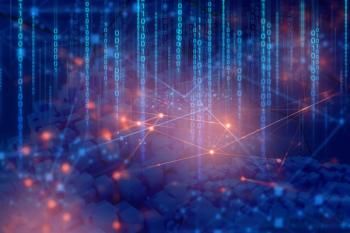
The Lessons of COVID-19 as We Face the Challenge of Climate
How can we mitigate climate issues without harming working Americans?
COMMENTARY
Despite attempts to put COVID-19 on the back burner, the economic and societal effects linger especially for lower income workers and small business owners who were disproportionally affected. Many agree that the pandemic worsened political fissures and view the country as more divided. Some of those hardest hit have become more suspicious with regards to the medical profession and governmental interference. “Trust the science” became the mantra by which pandemic related decisions were made, overriding all other issues including economic, educational, and personal freedoms, including freedom of speech. With the passing of time, some of the decisions made by public health leaders have come into question: for example, Anthony Fauci, MD’s admission to the closed door House Select Subcommittee on the Coronavirus Pandemic in January 2024 that social distancing was arbitrary and not based on science.2
The similarity with COVID-19, which shut down our economic engine with nary a permitted discussion of alternative viewpoints, is eerily replayed with the climate threat, which also has the capacity to dramatically alter careers, financial well-being, and personal freedoms, especially for lower- and middle-income families. Those who disagree on climate issues such as the role of carbon dioxide, the human connection, the environmental dangers of green policy, the inability of alternative energy to power the ever-expanding needs of the grid in the era of artificial intelligence are labeled pejoratively as climate deniers or anti-science, similar to the vilification of anti-maskers and anti-vaxxers. Attempts to fully understand the possible consequences of going full speed ahead with a green agenda are met with pending catastrophic scenarios. For those hardest hit, the worry of an increased carbon tax burden, restrictions of goods, increased government interference in their lives before they have fully recovered from the gloom and uncertainty of the pandemic can be overwhelming. Conversely, the hardest hit during COVID-19 carry the least carbon footprint.
Regardless of the catastrophic scenarios painted for both COVID-19 and climate, the American public remains firmly divided. The belief that a common enemy unites does not appear to hold true for either scenario. In our highly politicized and sharply divided country, the “trust the science” mantra has also lost its validity. Taylor Dotson, who wrote “Why Science Can’t Settle Political Disputes,” cautions that: “People act and talk as if a kind of apolitical scientific politics can steer controversial decisions, thus sidestepping or obviating differences in value or world view. The resulting actions and talk are, however, far from apolitical but instead amount to a form of fanaticism. That is, political scientism starkly divides society into friends and enemies, the enlightened and the ignorant.”1
Dotson further points out that “in a culture dominated by politicians, citizens and policy makers forget how to listen, debate and explore possibilities for compromise or concession with one another. Instead, we come to believe that our opponents only need to be informed of the ‘correct facts or truths.’”1
COVID-19 changed our focus from the existential threat of climate to the critical crisis at hand. Psychiatric leaders believe it is their obligation to warn Americans about the urgency of climate and to educate Americans about the “correct facts or truths,”1 but strategies that worked prepandemic may not be effective in our postpandemic mindset. Given the fragility of our economic situation and disparate hardships to be faced by certain segments of the population during a formidable transition to green energy, it may be the time to take pause and fully explore the consequences of going forward like a “bull in a china shop.” It is possible to achieve the end game of mitigating climate without repeating the mistakes made in the management of COVID and, at the same time cause the least amount of harm to vulnerable Americans.
Dr Varas is a psychiatrist in Westwood, New Jersey.
Reference
1. Dotson T. Why science can’t settle political dispute. The MIT Press Reader. September 29, 2021. Accessed June 12, 2023.
2. COVID Select Subcommittee Releases Dr. Fauci’s Transcript, Highlight Key Takeaways in New Memo. Committee on Oversight and Accountability. Press release. May 31, 2024.
Newsletter
Receive trusted psychiatric news, expert analysis, and clinical insights — subscribe today to support your practice and your patients.







